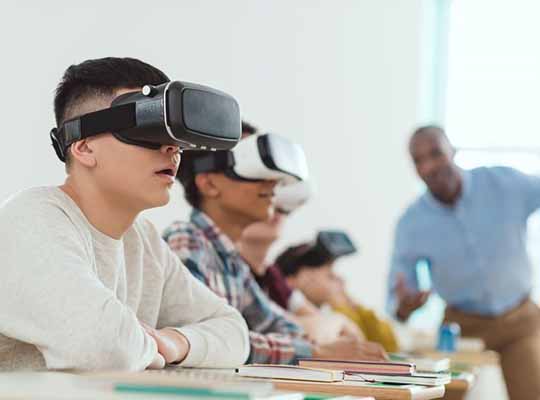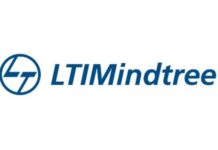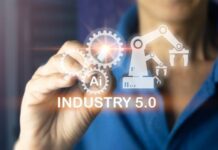We all are aware that the world around us is changing at a great speed and more specially during Covid times, which has accelerated all this change and our approach towards execution of various activities. Covid transformed us to become “Online” and it was technology that kept us connected during these unprecedented times.
Changes in Skills required:
Even before Covid, we had realised that we are undergoing a paradigm shift and that we are now in the Fourth Industrial Revolution, also referred to as Industry 4.0. This new Industry 4.0 transformation focuses on interconnectivity, automation, machine learning, artificial intelligence, Internet of things and real time data capture and analysis through digital transformation. This Industrial revolution would also transform our society, just as the previous three revolutions have done and it promises to convert our social and business problems to opportunities.
As an example, one of the technologies that came to the fore during the covid challenge was Artificial Intelligence – which shortened the amount of time that was needed to develop a Covid Vaccine, and automation in the form of drones that were utilized to manage deliveries and supply chains.
So companies and organisations may be different but they all require connectedness and access to real-time analytics and insights across processes, products, partners, people and places and they require human resources and people with the required skills to help them solve new age challenges.
Skills Gap:
Industry 4.0 needs students with talent and job ready skills, however there is a growing skills gap in the industry. The skills that employers want and what they rely on is changing and therefore a skills gap is developing in the job market. Employers struggle to find appropriately trained workers.
It has been said that this is the Century of Asian Countries and the Asia region is expect to have the largest share of markets. The need for talent is thus urgent and obvious.
But to develop competencies to match the industry requirements is not easy. The emerging technologies of this revolution include artificial intelligence, industrial metrology, robotics, augmented reality, blockchain, 3D printing, cloud computing, Machine Learning, Big Data and Digital transformation.
Along with these skills, individuals need a wealth of diversified skills and knowledge about people management, finance, problems solving and critical thinking. All these skills are critical to leverage a new way of thinking, transformation and innovation.
Role of higher education institutions to provide talent to Industry:
And this is where is the role of Higher Education Institutions come. It is needed that higher education institutes provide the platforms for learning the required skills to bridge the gap.
Universities need to design programs that cater to the demands of the Industry. Such as Masters programs in Management and Analytics, Programs in Management and Machine Learning, Management and Digital Transformation, Management and Fintech both at Undergraduate and Post Graduate Levels. Institutes of higher education have to train graduates to become the torch bearers and change leaders of tomorrow.
These new programs can break down the walls as in the traditional courses that separate one discipline from another. In new age courses, the emphasize should be on cross-functional inter-disciplinary learning so that students are able to master various skills, who can work with a variety of disciplines and develop innovative solutions to complex business problems.
Students may also opt for courses in humanities, finance and economics and then use online platforms such as Coursera or Udemy to upgrade their skills in other fields that are not covered in their University Syllabus. It is thus essential that universities guide the students to acquire the required skills, either as part of their syllabus or using external online platforms with the support and enablement of credits from the University
Role of Industry to bridge the talent gap:
Universities and students need the help of industry leaders to guide them and play an active part bridging the education and skill gap. Higher education should collaborate with Industry to develop the right ecosystem for student learning for this new paradigm. Students should work on projects that are built on industry relevant issues and provide students the opportunities to put theory into practice and deepen their knowledge. Industry should thus collaborate with Institutes of higher education in developing Initiatives and programs, outside the Class Room, such as
- Capstone Projects on cutting edge industry challenges
- Industry based Internships
- Knowledge sharing sessions with Industry and Academia
- Industry relevant cutting edge curriculum
These programs and initiatives development graduates across cross- functional competencies that makes them a good fit for a broad range of jobs across various industries and companies.
Role of Students towards learning and education:
Students during the current generation are much more aware of their surroundings than previous generations due to access to social media and online resources. It is thus the responsibility of the students along with the universities to make sure that students utilize the online resources to the optimum. Students should understand that teaching and learning are two different aspects and that Universities and parents have the responsibility to teach, however Students have the responsibility to learn, to substantiate their University learning with online and other resources and make the best use of their time, resources and the arrangements society has made for them to reach their full potential in life.
About the Author:
Dr Jyoti Ahluwalia is working as an Associate Professor of Data Analytics and Machine Learning at Sushant University, Gurgaon. She is also an Independent Board of Director at an NBFC in Gurugram. She has over twenty years of work experience and has worked on various assignments in research, analytics and consulting. She has been teaching Analytics and Machine Learning for 5 years and has trained more than 1000 persons from several large MNCs including TCS, Tata Motors, KPMG and Goldman Sachs.
Dr Jyoti has more than eight years of corporate experience of working in Actuarial and Consulting firms dealing in Big Data, Insurance and Financial Consulting and Modelling. She worked for five years in Milliman, a US based Actuarial and Consulting firm and at Corporate Executive Board, a best practice firm and a Gartner Company now. In these assignments, she worked on consulting projects that required management of large sets of data to answer business and research problems and worked with and lead various international teams.
In her teaching role, Dr Jyoti has taught finance and analytics at IBS Gurgaon where she also led the institute as an Associate Dean. She has been teaching analytics and data science courses at Gurugram University and at Great Learning (Great Lakes) for their executive learning courses. She has taught Financial Risk Analytics, Credit Risk Analytics, Fraud Analytics, Time Series Forecasting and Prediction, Exploratory Data Analytics and Statistical Methods for Data Science and Machine Learning courses.
She has been working as a Mentor to students of University of Texas Austin and Great Learning collaborative Machine Learning and Artificial Intelligence Post Graduate Program. Her academic endeavors include BCom., MCom, PhD (Finance), Chartered Financial Analyst (CFA), MBA (Finance & IT) and six actuarial papers and is a former member of the Actuaries Society of India. Dr Jyoti has published several research articles in leading academic journals, written several case studies and contributed chapters to books. She is a lifelong learner and is passionate about use of technology and about areas where finance and technology meet.
















